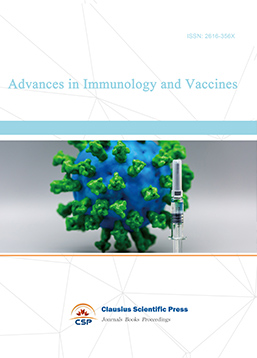Research on Users' Health Information Literacy and Information Source Preferences
DOI: 10.23977/phpm.2024.040212 | Downloads: 19 | Views: 1070
Author(s)
Wang Shanshan 1, Ruan Mei 2
Affiliation(s)
1 Library, University of Shanghai for Science and Technology, Shanghai, 200093, China
2 The Administrative Center of Shanghai R&D Public Service Platforms, Shanghai, 200235, China
Corresponding Author
Wang ShanshanABSTRACT
The ability to select appropriate information sources is a key component of users' health information literacy. The investigation of preferences regarding the sources of health information can assist in the analysis of the diverse range of information sources utilized by individuals with varying degrees of health information literacy. The findings of this research have the potential to enhance users' health information literacy and the quality of the information they obtain. A questionnaire is used to measure users' health information literacy, and interviews are used tracking users' health information seeking behavior. NVivo 12 is used to analyze data. The research results show that users with different levels of health information literacy have different preferences for information source selection. Users with high levels of health information literacy are more inclined to choose online information sources to search for health information, and the selected information sources are very rich. The information source selection preferences of users with medium health information literacy level are the most unique. In addition to doctors, family and friends, search engines, they also choose low trust sources. Users with low levels of health information literacy have a relatively limited selection of information sources, including doctors, family and friends, television programs, and search engines. In addition, the influencing factors of user information source selection vary with different levels of health information literacy.
KEYWORDS
Health information literacy; Information source selection; Health information source preference; Health information behaviorCITE THIS PAPER
Wang Shanshan, Ruan Mei, Research on Users' Health Information Literacy and Information Source Preferences. MEDS Public Health and Preventive Medicine (2024) Vol. 4: 86-95. DOI: http://dx.doi.org/10.23977/phpm.2024.040212.
REFERENCES
[1] Chisolm D J, Hardin D S, McCoy K S, et al. Health literacy and willingness to use online health information by teens with asthma and diabetes. Telemedicine and E-health, 2011, 17(9): 676-682.
[2] Wu D, Li Y Z. An Experiment Study on Older Adults' Online Health Information Seeking Behavior. Library and Information Service, 2014, 58(12): 102-108.
[3] Gu M X, Chen H, Zhou F J, et al. Analysis of Factors Influencing Health Information Search Behavior of Older Adults in New Media. Science & Technology Information, 2018, 16(23): 229-230.
[4] Zhou X Y, Cai W J. Universities Students Online Health Information Seeking Behavior Patterns and Influencing Factors. Information and Documentation Services, 2014(4): 50-55.
[5] Dobransky K, Hargittai E. Inquiring minds acquiring wellness: uses of online and offline sources for health information. Health Communication, 2012, 27(4): 331-343.
[6] Miller L M S, Bell R A. Online health information seeking: the influence of age information trustworthiness, and search challenges. Journal of Aging and Health, 2012, 24(3): 525-541.
[7] Choudhury M D, Morris M R, White R W. Seeking and sharing health information online: comparing search engines and social media[C/OL]// SIGCHI 2014 Proceedings.
[8] Okoniewski A E, Lee Y J, Rodriguez M, et al. Health information seeking behaviors of ethnically diverse adolescents [J]. Journal of Immigrant and Minority Health, 2014.
[9] Cristina V, Baban A. Emotional and behavioral consequences of online health information seeking: the role of eHealth literacy [J]. Cognitie, Creier, Comportament/Cognition, Brain, Behavior, 2015, 19: 327-345.
[10] Dawson-Rose C, Cuca Y P, Webel A R, et al. Building Trust and Relationships Between Patients and Providers: An Essential Complement to Health Literacy in HIV Care[J]. Journal of the Association of Nurses in AIDS Care, 2016, 27(05): 574-584.
[11] Diviani N, Putte B V D, Giani S, et al. Low health literacy and evaluation of online health information: A systematic review of the literature[J]. Journal of Medical Internet Research, 2015, 17(05): e112.
[12] Niemela R, Ek S, Eriksson-Backa K, et al. A screening tool for assessing everyday health information literacy. Libri, 2012, 62(02): 125-134.
[13] Gratch B G. Exploring the principle of least effort and its value to research[J]. College & Research Libraries News, 1990, 51(08):727-728.
| Downloads: | 5078 |
|---|---|
| Visits: | 332389 |
Sponsors, Associates, and Links
-
MEDS Clinical Medicine

-
Journal of Neurobiology and Genetics

-
Medical Imaging and Nuclear Medicine

-
Bacterial Genetics and Ecology

-
Transactions on Cancer

-
Journal of Biophysics and Ecology

-
Journal of Animal Science and Veterinary

-
Academic Journal of Biochemistry and Molecular Biology

-
Transactions on Cell and Developmental Biology

-
Rehabilitation Engineering & Assistive Technology

-
Orthopaedics and Sports Medicine

-
Hematology and Stem Cell

-
Journal of Intelligent Informatics and Biomedical Engineering

-
MEDS Basic Medicine

-
MEDS Stomatology

-
MEDS Chinese Medicine

-
Journal of Enzyme Engineering

-
Advances in Industrial Pharmacy and Pharmaceutical Sciences

-
Bacteriology and Microbiology

-
Advances in Physiology and Pathophysiology

-
Journal of Vision and Ophthalmology

-
Frontiers of Obstetrics and Gynecology

-
Digestive Disease and Diabetes

-
Advances in Immunology and Vaccines

-
Nanomedicine and Drug Delivery

-
Cardiology and Vascular System

-
Pediatrics and Child Health

-
Journal of Reproductive Medicine and Contraception

-
Journal of Respiratory and Lung Disease

-
Journal of Bioinformatics and Biomedicine


 Download as PDF
Download as PDF